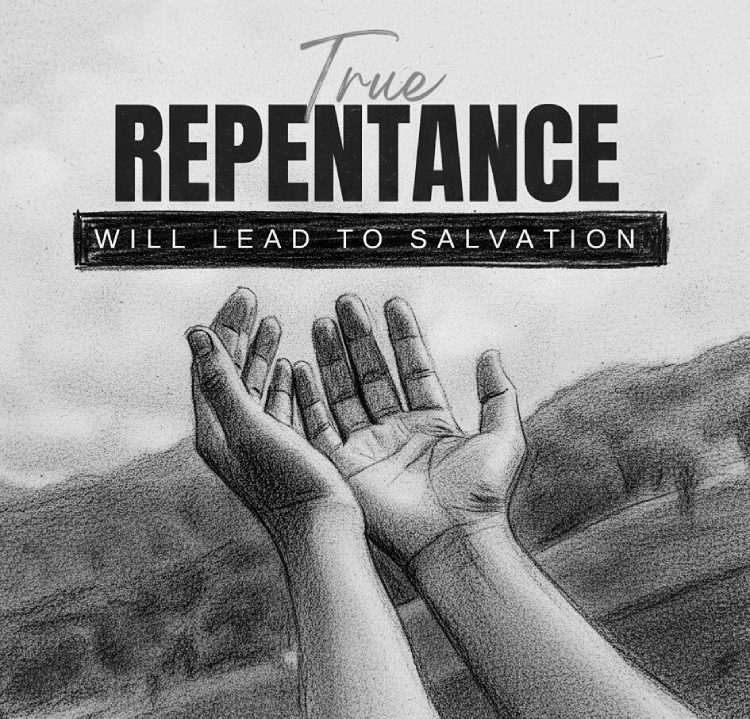
Download a PDF for printing at Home: True Repentance
Too often, conversations about the gospel stop short of the heart issue: true repentance. It’s easy to talk about forgiveness, grace, and heaven, but if someone doesn’t understand what it really means to turn from sin, they may mistake regret for salvation—and walk away unchanged.
Robert Rothwell, writing for Ligonier Ministries, tackles this critical topic with clarity and depth. His article calls every believer to a deeper grasp of repentance, not only for their own walk with Christ but also for sharing the gospel faithfully.
If we fail to explain repentance clearly, we risk leaving people with a false sense of security. This summary is designed to equip you to communicate repentance in a way that leads others beyond mere words of apology and into genuine saving faith.
The following is a summary of this article:
What Is Repentance?
This Ligonier article opens by spotlighting Jesus’s first public words: “The time is fulfilled, and the kingdom of God is at hand; repent and believe in the gospel.” That sets the tone—repentance is foundational to following Christ.
Repentance Unto Life
The Westminster Confession of Faith explains “repentance unto life,” distinguishing it from superficial, worldly sorrow. True repentance isn’t just regret over consequences—such as feeling bad about getting caught—but stems from realizing how our sin offends God and hurts others.
In 2 Corinthians 7:10, Paul draws a sharp line between genuine repentance and its counterfeit: “For godly grief produces a repentance that leads to salvation without regret, whereas worldly grief produces death.” True, saving repentance—often called “repentance unto life”—flows from a deep sorrow over sin, not merely because of its consequences, but because it is an offense against a holy and righteous God. This sorrow is coupled with a confident trust in God’s mercy, knowing that forgiveness has been made possible through the atoning work of Christ. Just like faith, repentance itself is not something we generate on our own; it is a gracious gift from God that leads to life.
The Master’s University: Repent and Believe
The Greek word for “repentance” is metanoia. . . Literally, it means “afterthought” or “change of mind,” but biblically, its meaning does not stop there. As metanoias used in the New Testament, it always speaks of a change of purpose, and specifically a turning from sin. In the sense Jesus used it, repentance calls for a repudiation of the old life and a turning to God for salvation.
The Heart of True Repentance
The Westminster Confession’s definition is quoted:
A sinner, impressed not only with the danger but also the filth and odiousness of their sins—seeing them as opposed to God’s holy nature and law—and, apprehending God’s mercy in Christ, grieves over and hates those sins, turning from them to God with the intent to walk in His ways.
In essence:
- Recognize sin as both offensive and filthy before a holy God.
- Trust in Christ’s mercy.
- Hate sin and turn from it, evidencing a genuine desire to obey.
Psalm 51:4 (where David acknowledges his sin against God above all) becomes a vivid example of this inward transformation: “You are really the one I have sinned against; I have disobeyed you and have done wrong. So it is right and fair for you to correct and punish me.” (CEV)
Highlighted also are the contrasting trajectories of Peter and Judas—both sinned deeply, both felt sorrow, but only Peter’s sorrow led him back to Jesus. At the same time, Judas’s despair took him away from restoration.
True repentance isn’t just saying sorry; it’s a life reshaped. The call is to cast off the works of darkness and put on Christ, living out our identity as new creations. Repentance begins at conversion but continues throughout our lives. Confession isn’t wasted words—it’s accompanied by obedience, and God is faithful to forgive and cleanse (1 John 1:8–9): “If we say we have no sin, we deceive ourselves, and the truth is not in us. If we confess our sins, he is faithful and just to forgive us our sins and to cleanse us from all unrighteousness.”
A Blessing, Not a Burden
Even when we fall into the same sin again, it doesn’t mean we never truly repented—but if we love the sin and make no effort to change, it’s worth reflecting on the genuineness of that repentance. For believers, repentance is both a sacred duty and a joyful privilege—it sustains our fellowship with Christ and fuels growth in holiness.
